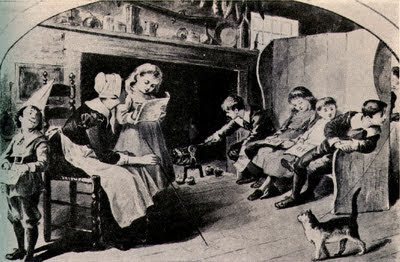The Times They Are A-Changin: The age of peer-to-peer lending
The entire Paulo Freire reading was passionate and emotional (just look at this video of how he moves his body when discussing about critical thinking). I can strongly relate to some of the arguments that Freire makes based on my experiences in Nepal and India. However, I also feel that the situation is not as dire now as it probably was during Freire’s time. I discuss both these contradicting perspectives below and conclude with learning/teaching implications that I feel we could learn from Freire’s work.
When I was working in India, there was a growing movement of right-wing Hindu nationalists (the party power) to enforce Hindu teachings in schools. This movement has been termed as saffronisation. Rajasthan, a large state in the western part of India, has decided to change the textbooks from 2016 onwards. These new textbooks has far more content on Hindu movements, and allegedly, downplays on works involving other religions. Likewise, Karnataka state, where Bangalore city – the “Silicon valley of the east” lies, has also decided to change their textbooks from 2017 onwards following the same line as Rajasthan.
If we think about it, these policies assume the “banking model” of education, and unfortunately, they are not wrong. Education system in India and Nepal are mostly follow the banking model especially in public schools. It is fairly common to see teachers as the center of the learning process, and pupils as mere objects whose mind is being filled. The learning practice has been such that students rarely question teachers or argue against the information being provided. This is so prevalent that many students feel that they insult the teacher if they question anything. Critical thinking is not something that is usually taught or discussed within the school boundaries. This makes adding Hinduism-laden content in the textbooks a very effective way to influence young students.
This brings me to the second part – and the relevance of the title. The time in which Freire experienced inequality was quite different – huge economic inequality existed in Brazil, people needed to be literate to vote so that meant the voice of the poor was extremely suppressed, and there were very few alternate sources of information other than formal education. Additionally, until 1960s behaviorist approach to learning was prominent. All this would have culminated in an environment where the privileged teachers who could expound knowledge and influence behavior could so in their interest (or as Freire writes by “changing the consciousness of the oppressed”).
In modern days there are far more free information sources (although it remains highly debatable how “free” each of them are). Particularly, access to Internet, the decentralized repository of a vast range of information, has empowered lots of people. Teachers are no longer center of the learning process. Rather, “peers” who produce information over the internet have become far more influential. Since it is decentralized and enormously connected, a person of influence in one setting may be the influenced one in the other setting.
Although learning has become peer-to-peer and more decentralized, the importance of critical thinking is equally, if not more, important. There are all sorts of information out there and to figure out the relevant ones, and filter out the wrong/misleading/useless ones require a well-rounded understanding of the world. Freire uses the term “consciousness” to highlight the levels of situational awareness – moving upwards from “magical consciousness” to “naive consciousness”, and further towards “critical consciousness” and finally to “political consciousness”. These terms may seem like a hyperbole but the underlying fundamental idea that Freire expresses remains highly relevant. The time may not be of a banking model, but “action and reflection of men and women upon their world in order to transform it” – which Freire terms as “praxis”- is imperative for our society to progress either be it to ensure justice and equality, or to mitigate oppression (corporate, political, social, emotional) and suffering. Understanding the world through the words and acting upon it is highly important, as Dylan writes:
Come writers and critics
Who prophesize with your pen
And keep your eyes wide
The chance won’t come again
The post The Times They Are A-Changin: The age of peer-to-peer lending appeared first on Aakash.


